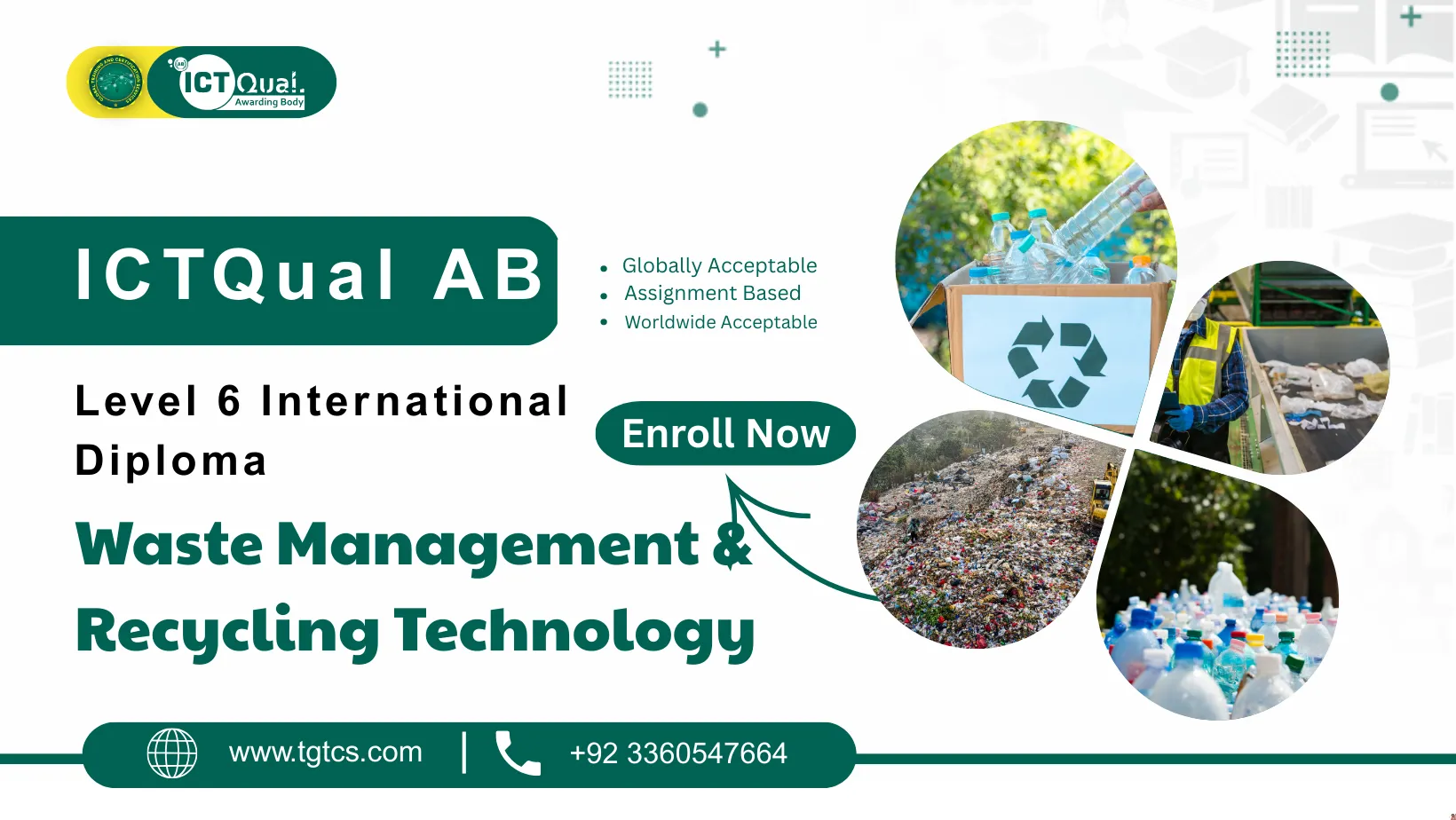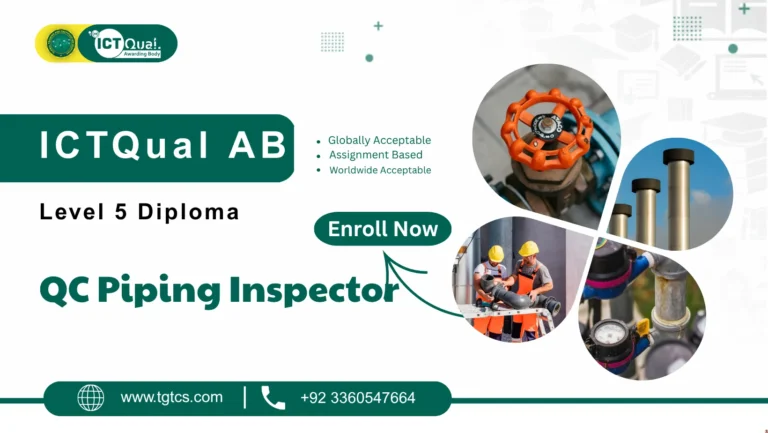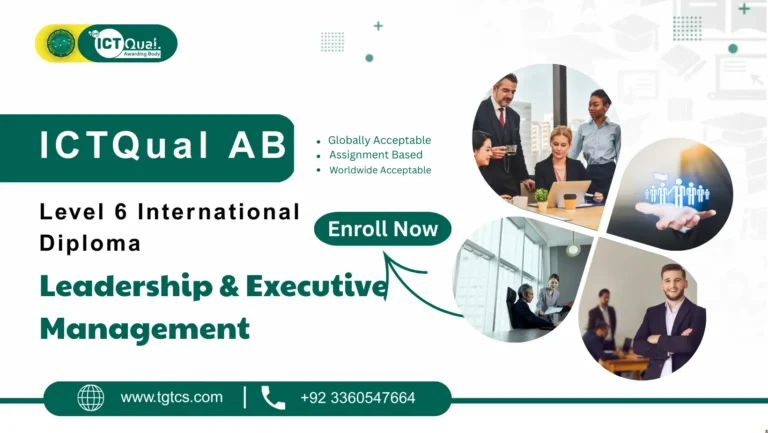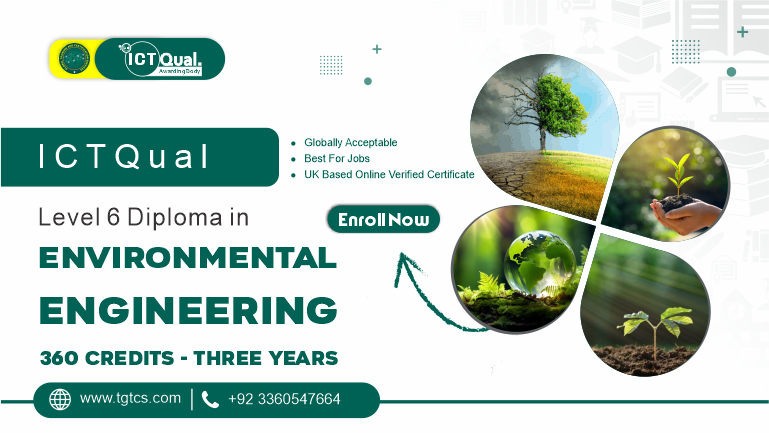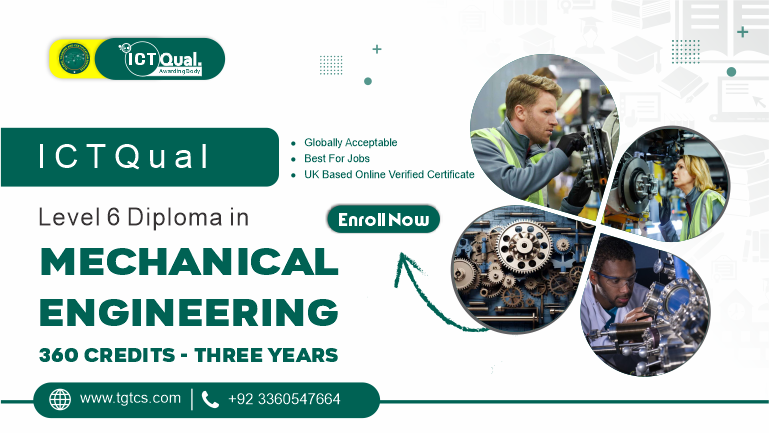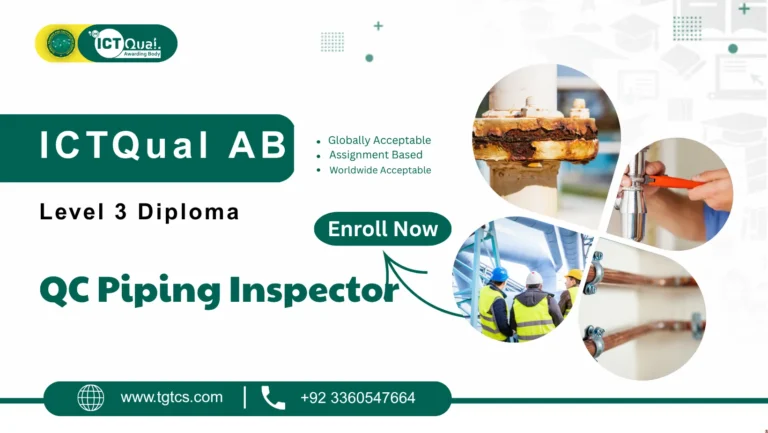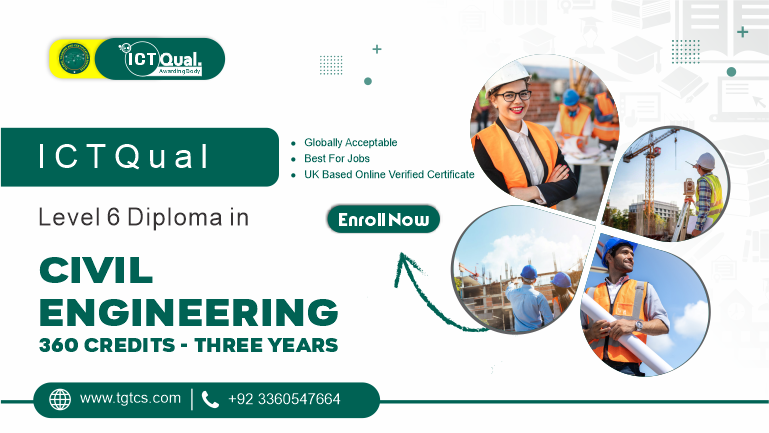ICTQual AB Level 6 International Diploma in Waste Management & Recycling Technology
The management of waste and recycling has become a critical focus for industries, municipalities, and environmental organizations worldwide. The ICTQual AB Level 6 International Diploma in Waste Management & Recycling Technology is designed to equip learners with advanced knowledge and practical expertise to tackle modern waste challenges, promote sustainable practices, and optimize resource recovery. This internationally recognized Level 6 diploma provides comprehensive insights into waste treatment processes, recycling technologies, and environmental compliance strategies, making it an essential qualification for professionals committed to a greener future.
This course covers the full spectrum of waste management and recycling practices, from municipal and industrial waste handling to advanced recycling technologies and circular economy principles. Learners gain practical skills in waste minimization, hazardous waste management, and the design and operation of modern recycling systems. The curriculum emphasizes regulatory compliance, sustainability frameworks, and innovative solutions to environmental challenges, ensuring that graduates are prepared to lead initiatives in both private and public sectors.
Throughout the program, learners develop competencies in environmental assessment, risk management, and the application of digital tools for monitoring and optimizing waste operations. They also acquire strategic planning, leadership, and project management skills tailored to waste management and recycling projects, enabling them to implement sustainable solutions effectively.
Ideal for fresh graduates, environmental engineers, and industry professionals, this diploma is fully assignment-based, verifiable through the British Council, MOFA, and Embassy, and supports iqama approval and global career advancement. By completing this course, learners will be positioned as skilled and credible experts in the rapidly growing field of waste management and recycling technology, ready to contribute to environmental sustainability and industrial efficiency worldwide.
The Global Training and Certification Services is Approved Training Centre of ICTQual AB UK Ltd
Course Level and Credits
Level 6 International Diploma, 360 credits.
Suitable for professionals, entrepreneurs, environmental specialists, and students seeking advanced knowledge in waste management and recycling technology.
Mode of Study
Fully assignment-based; learn at your own pace.
Accessible from anywhere in the world, flexible for working professionals and full-time students.
Global Recognition & Attestation
British Council verifiable, MOFA and Embassy attested.
Recognized for career advancement, employment, and iqama approval in Gulf countries.
Scope and Purpose
Comprehensive coverage of waste management, recycling technologies, hazardous and industrial waste treatment, and sustainability practices.
Focus on both theoretical understanding and practical application in environmental engineering, industrial operations, and municipal waste management.
Skills and Knowledge Gained
Practical expertise in waste collection, treatment, and recycling processes.
Knowledge of environmental compliance, risk assessment, and sustainable resource management.
Leadership and strategic planning skills for managing recycling projects and waste management operations.
Career Benefits
Opens opportunities in environmental consultancy, municipal and industrial waste management, recycling technology companies, and sustainability roles.
Enhances professional credibility and employability in global environmental and industrial sectors.
Target Audience
Environmental engineers, waste management professionals, sustainability consultants, municipal planners, and students aiming for careers in waste management and recycling technologies.
Unique Selling Points (USPs)
Flexible self-paced study, fully assignment-based.
Prestigious and globally recognized Level 6 diploma.
Ideal for international job opportunities and iqama approval.
Mandatory Unit
This qualification, the ICTQual AB Level 6 International Diploma in Waste Management & Recycling Technology, consists of 36 mandatory units.
Year 1 – Foundations of Waste Management & Recycling Technology
- Principles of Waste Management
- Introduction to Environmental Science and Sustainability
- Waste Legislation and Regulatory Compliance
- Waste Hierarchy and Circular Economy Concepts
- Hazardous and Non-Hazardous Waste Management
- Solid Waste Collection and Transportation Systems
- Recycling Technologies and Processes
- Water and Air Quality in Waste Management
- Occupational Health, Safety, and Environmental Awareness
- Environmental Communication and Reporting
- Professional Ethics in Waste Management
- Introduction to Project Planning in Waste Management
Year 2 – Applied Waste Management & Recycling Practices
- Advanced Waste Treatment and Processing Techniques
- Industrial Waste Management
- Hazardous Waste Handling and Disposal
- Waste-to-Energy Technologies
- Resource Recovery and Sustainable Practices
- Environmental Monitoring and Audit Techniques
- Waste Management in Manufacturing and Commercial Sectors
- Digital Tools and Technologies in Waste Management
- Environmental Risk Assessment and Management
- Behavioural and Organisational Approaches to Waste Safety
- Research Methods for Waste and Recycling Projects
- Project Implementation and Operational Planning
Year 3 – Strategic Leadership in Waste Management & Recycling
- Strategic Waste Management and Governance
- Integrated Environmental Management Systems (ISO 14001, ISO 50001)
- Policy Development and Implementation in Waste Management
- Sustainability Leadership and Corporate Social Responsibility (CSR)
- Environmental Risk Management in Large-Scale Projects
- Renewable Energy Integration in Waste Management
- International Waste Management Standards and Best Practices
- Innovation and Emerging Technologies in Recycling
- Environmental Crisis Management and Emergency Planning
- Advanced Occupational Health & Environmental Wellbeing Strategies
- Independent Research Project in Waste Management & Recycling
- Capstone Project: Applied Waste Management & Recycling Technology
The following learning outcomes are designed to equip learners with comprehensive knowledge, practical skills, and strategic expertise in waste management and recycling technology, enabling them to excel in environmental sustainability and industrial applications globally.
Year 1 – Foundations of Waste Management & Recycling Technology
Principles of Waste Management
- Understand fundamental concepts and types of waste management.
- Learn principles of sustainable waste handling and disposal.
- Analyze waste generation patterns and environmental impact.
- Apply basic strategies for effective waste reduction.
Introduction to Environmental Science and Sustainability
- Comprehend environmental science principles and sustainability concepts.
- Identify the ecological impact of industrial and municipal waste.
- Integrate sustainable practices in waste management operations.
- Evaluate environmental challenges and propose practical solutions.
Waste Legislation and Regulatory Compliance
- Understand local, national, and international waste laws.
- Ensure compliance with environmental regulations and safety standards.
- Analyze legal frameworks for industrial and municipal waste management.
- Implement policies to mitigate regulatory risks.
Waste Hierarchy and Circular Economy Concepts
- Learn the principles of the waste hierarchy and resource optimization.
- Apply circular economy practices to minimize waste and maximize recovery.
- Develop strategies for sustainable product lifecycle management.
- Evaluate the effectiveness of reuse, recycle, and recovery methods.
Hazardous and Non-Hazardous Waste Management
- Identify different categories of waste and associated risks.
- Apply safe handling and disposal techniques for hazardous materials.
- Implement storage and containment measures to prevent environmental contamination.
- Monitor and evaluate waste management efficiency.
Solid Waste Collection and Transportation Systems
- Understand municipal and industrial waste collection strategies.
- Learn transportation logistics and environmental impact mitigation.
- Apply operational planning for efficient waste handling systems.
- Integrate safety protocols in collection and transportation processes.
Recycling Technologies and Processes
- Examine different recycling methods for various waste streams.
- Understand material recovery processes and efficiency optimization.
- Apply recycling techniques to industrial and municipal settings.
- Evaluate technological advancements in recycling operations.
Water and Air Quality in Waste Management
- Assess the impact of waste on water and air quality.
- Implement pollution control and monitoring strategies.
- Understand treatment technologies for water and air contaminants.
- Apply environmental monitoring data to improve operational performance.
Occupational Health, Safety, and Environmental Awareness
- Recognize workplace hazards in waste handling and recycling.
- Apply health and safety regulations in industrial settings.
- Develop awareness programs for environmental protection.
- Ensure adherence to personal protective equipment (PPE) standards.
Environmental Communication and Reporting
- Learn effective reporting methods for environmental performance.
- Communicate sustainability initiatives to stakeholders.
- Prepare technical reports on waste management projects.
- Understand compliance reporting for environmental authorities.
Professional Ethics in Waste Management
- Understand ethical practices in environmental and waste operations.
- Apply corporate social responsibility (CSR) principles.
- Promote transparency and accountability in waste management projects.
- Integrate ethical considerations in decision-making processes.
Introduction to Project Planning in Waste Management
- Learn project planning methodologies specific to waste management.
- Develop timelines, budgets, and resource allocation strategies.
- Understand risk assessment and mitigation in project planning.
- Apply practical project management tools for operational success.
Year 2 – Applied Waste Management & Recycling Practices
Advanced Waste Treatment and Processing Techniques
- Analyze modern waste treatment technologies and their applications.
- Implement effective processing methods for industrial and municipal waste.
- Optimize treatment efficiency using sustainable engineering practices.
- Evaluate technological innovations for hazardous and non-hazardous waste.
Industrial Waste Management
- Understand industrial waste generation and classification.
- Apply best practices for safe collection, storage, and disposal.
- Integrate waste minimization strategies in industrial operations.
- Conduct audits to ensure regulatory compliance and sustainability.
Hazardous Waste Handling and Disposal
- Learn safe handling, storage, and disposal methods for hazardous materials.
- Apply risk assessment strategies for hazardous waste operations.
- Ensure adherence to international and local safety regulations.
- Monitor environmental impact and implement mitigation measures.
Waste-to-Energy Technologies
- Explore energy recovery methods from municipal and industrial waste.
- Evaluate the efficiency and sustainability of waste-to-energy processes.
- Integrate renewable energy technologies into waste management systems.
- Assess environmental and economic feasibility of energy recovery projects.
Resource Recovery and Sustainable Practices
- Implement recycling, reuse, and recovery strategies in operational settings.
- Apply circular economy principles to optimize resource utilization.
- Measure sustainability performance using key environmental indicators.
- Develop strategies to reduce environmental footprint and increase efficiency.
Environmental Monitoring and Audit Techniques
- Learn techniques for monitoring waste management systems.
- Conduct audits to assess compliance with environmental standards.
- Analyze monitoring data to improve operational efficiency.
- Recommend corrective actions for continuous improvement.
Waste Management in Manufacturing and Commercial Sectors
- Understand sector-specific waste challenges and regulatory requirements.
- Develop customized waste management strategies for different industries.
- Apply sustainable practices in manufacturing and commercial operations.
- Integrate waste reduction and recycling programs in industrial settings.
Digital Tools and Technologies in Waste Management
- Utilize software and digital tools for tracking and managing waste streams.
- Implement data analytics for process optimization and reporting.
- Enhance operational efficiency with technological integration.
- Explore emerging technologies in smart waste management systems.
Environmental Risk Assessment and Management
- Conduct risk assessments for waste management processes.
- Identify potential hazards and develop mitigation strategies.
- Apply risk management frameworks for industrial and municipal operations.
- Monitor and evaluate effectiveness of safety and environmental controls.
Behavioural and Organisational Approaches to Waste Safety
- Promote safety culture and behavioral change in organizations.
- Implement training programs for waste management personnel.
- Encourage adherence to safety protocols and sustainability practices.
- Evaluate organizational performance and identify areas for improvement.
Research Methods for Waste and Recycling Projects
- Learn research design and methodologies specific to waste management.
- Conduct literature reviews and data collection for environmental projects.
- Apply statistical and analytical tools to interpret research findings.
- Prepare research reports for operational and policy decision-making.
Project Implementation and Operational Planning
- Develop detailed project plans for waste management initiatives.
- Allocate resources effectively for operational efficiency.
- Monitor project progress and adjust strategies as needed.
- Evaluate project outcomes to ensure sustainability and compliance.
Year 3 – Strategic Leadership in Waste Management & Recycling
Strategic Waste Management and Governance
- Develop strategic plans for effective waste management operations.
- Implement governance frameworks to ensure compliance and sustainability.
- Evaluate organizational policies for environmental impact reduction.
- Lead decision-making processes for large-scale waste initiatives.
Integrated Environmental Management Systems (ISO 14001, ISO 50001)
- Apply ISO standards to enhance environmental performance in organizations.
- Design and implement integrated management systems for waste operations.
- Conduct audits to ensure standard compliance and continuous improvement.
- Utilize management systems to optimize resource use and reduce waste.
Policy Development and Implementation in Waste Management
- Formulate policies for sustainable waste management practices.
- Implement regulatory frameworks within industrial and municipal settings.
- Monitor policy effectiveness and recommend improvements.
- Align organizational operations with international environmental standards.
Sustainability Leadership and Corporate Social Responsibility (CSR)
- Promote sustainability initiatives and responsible resource use.
- Lead corporate social responsibility programs in waste and recycling sectors.
- Integrate environmental and social goals into business strategies.
- Evaluate CSR impact on community and organizational performance.
Environmental Risk Management in Large-Scale Projects
- Identify and mitigate risks in complex waste management projects.
- Develop contingency plans and emergency response strategies.
- Apply quantitative and qualitative risk assessment tools.
- Ensure regulatory compliance and minimize environmental liabilities.
Renewable Energy Integration in Waste Management
- Explore waste-to-energy and renewable energy solutions.
- Assess feasibility of integrating renewable technologies into operations.
- Optimize energy recovery from waste streams for sustainability.
- Monitor performance and environmental impact of renewable systems.
International Waste Management Standards and Best Practices
- Implement global best practices for efficient and safe waste management.
- Ensure compliance with international regulatory frameworks.
- Benchmark organizational practices against industry standards.
- Promote continuous improvement through adoption of advanced techniques.
Innovation and Emerging Technologies in Recycling
- Apply cutting-edge technologies in waste treatment and recycling.
- Explore digital tools, automation, and AI for waste optimization.
- Innovate processes to reduce environmental footprint and costs.
- Evaluate technological advancements for operational scalability.
Environmental Crisis Management and Emergency Planning
- Develop plans for environmental emergencies and industrial accidents.
- Conduct drills and simulations to prepare teams for crises.
- Mitigate environmental, social, and operational risks.
- Monitor response effectiveness and update contingency plans.
Advanced Occupational Health & Environmental Wellbeing Strategies
- Integrate occupational health practices into waste management operations.
- Promote employee wellbeing in hazardous and industrial environments.
- Conduct risk assessments for workplace health and safety.
- Implement strategies to enhance environmental and occupational safety.
Independent Research Project in Waste Management & Recycling
- Conduct independent research addressing real-world waste management challenges.
- Apply analytical tools to interpret environmental and operational data.
- Prepare detailed reports for policy and operational recommendations.
- Present findings to stakeholders for strategic decision-making.
Capstone Project: Applied Waste Management & Recycling Technology
- Execute a comprehensive project encompassing all learned principles.
- Demonstrate leadership, technical expertise, and problem-solving skills.
- Integrate sustainability, risk management, and innovation in project delivery.
- Showcase professional competence for career advancement in the waste sector.
ICTQual AB Level 6 International Diploma in Waste Management & Recycling Technology equips learners with advanced knowledge and practical skills for a successful career in waste management, recycling, and environmental sustainability.
Enhanced Career Opportunities
- Boost your professional profile with an internationally recognized qualification
- Access leadership and managerial roles in management and recycling sectors
Practical Skills Development
- Master advanced techniques in waste collection, segregation, treatment, and recycling
- Gain hands-on expertise in modern recycling technologies and sustainable practices
Environmental and Sustainability Impact
- Learn to implement eco-friendly waste management practices
- Contribute to reducing environmental pollution and promoting community sustainability initiatives
Regulatory and Compliance Knowledge
- Understand international waste management laws, regulations, and best practices
- Design and implement compliant waste management systems for organizations and communities
Strategic and Analytical Competence
- Analyze, plan, and optimize waste management operations effectively
- Make strategic decisions for sustainable and cost-effective recycling solutions
This course empowers learners with the technical expertise, strategic insight, and practical skills required to become leaders in the global waste management and recycling industry.
The ICTQual AB Level 6 International Diploma in Waste Management & Recycling Technology is designed for learners who aspire to advance their careers in waste management, recycling, and environmental sustainability.
Environmental Professionals
- Enhance your expertise in sustainable waste management practices
- Apply advanced recycling technologies to real-world environmental projects
Career Changers in Sustainability
- Transition into the waste management and recycling industry with practical knowledge
- Gain the skills needed to take on strategic roles in sustainability-focused organizations
Industry Managers and Supervisors
- Improve leadership capabilities for managing waste management operations
- Learn to implement regulatory compliance and efficient recycling processes
Entrepreneurs and Business Owners
- Develop insights to establish or grow eco-friendly waste management ventures
- Learn strategies for sustainable operations and cost-effective recycling solutions
Academics and Researchers
- Deepen your understanding of waste management technologies and global practices
- Contribute to research and innovation in recycling and environmental sustainability
This course prepares learners with the technical knowledge, strategic insight, and practical skills required to excel as leaders in the global waste management and recycling industry.
Course Overview
Course Level
Level 6
Course Units
36 Units
Credits
360
Duration
3 years
